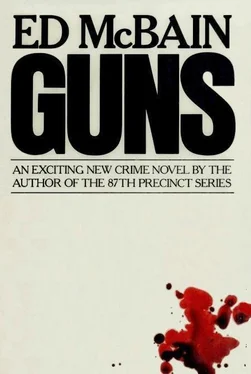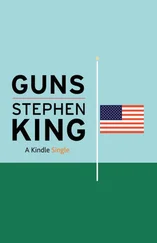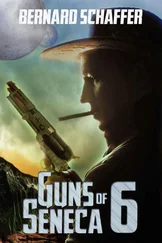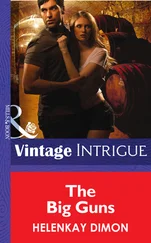There were no clubs in the Bronx, either. Not at first. It really was a nice neighborhood. But when Colley got to be fourteen, fifteen, the clubs started up again. This was the sixties now. He began noticing guys wearing the Oriole jacket, black jacket with orange cuffs and a picture of a bird on the back, the bird colored orange, the lettering Orioles, S.A.C. in orange just below the bird; the bird was perching on the “O” in “Orioles.” Colley noticed the guys in the jackets, and he asked about them, and learned that they called themselves a club, but he knew they were a gang. He steered clear of them. His brother Al knew all about street gangs because he was six years older than Colley and presumably remembered the gangs in Harlem dying of heroin pollution. He warned Colley to keep away from them. He was still in college at the time, and was learning a lot of new words. “Gangs are full of kids with personality disorders,” he told Colley.
Anyway, Colley did manage to stay away from the Orioles or any of the other gangs until just before the summer he turned sixteen. That was almost a year after he’d had the stockroom job with the Jewish kid; he was in fact thinking of taking another summer job, going down to the employment agencies downtown, looking over the blackboards to see what jobs were chalked on them. He wasn’t thinking of joining any damn street gang. But one day in school this fat kid Benny sat down across the table from him in the cafeteria. Up to that time, Colley had seen Benny around the neighborhood, wearing the orange-and-black jacket and strutting like a fuckin bigshot. He knew he was an Oriole, but he didn’t know his name. Colley was working on a crossword puzzle in one of the books he used to buy; it was Benny who started the conversation.
“You like doing those things?” he said, and Colley looked up. Benny wasn’t wearing the Oriole jacket. Colley learned only later that it wasn’t cool to wear the jacket to school. Teachers got nervous seeing the Oriole jacket, or any other club jacket in school. That’s because most of the teachers had grown up in the forties and knew all about street gangs and were afraid of street gangs starting up again.
“Yeah, I like crossword puzzles,” Colley said.
“You must be a good speller.”
“I’m not bad.”
“I can’t even spell my own name,” Benny said. “Gallitelli. Benny Gallitelli. No wonder I can’t spell it,” he said, and laughed. “Can you spell Gallitelli?”
“I don’t know,” Colley said.
“Try it. I’ll give you a hint, it starts with a G.”
Colley spelled the name on the first try. Benny seemed amazed.
“You got to meet my English teacher,” he said. “She can’t even pronounce it, no less spell it. What’s your name?”
“Colley Donato.”
They went through the whole “what’s-that-short-for” routine, Benny expressing surprise that anybody named Nicholas would be called Colley; his own brother was named Nicholas and he’d always been called Nick or Nickie. Colley explained that he had a cousin named Nicholas, and when they were little kids, all the aunts and uncles and goombahs used to call one of them Nickie and the other one Colley, to tell them apart. That’s how he’d got the name Colley. Benny said he could understand this because he himself had a pair of cousins both named Salvatore, and the family called one of them Salvie and the other one Sally.
It seemed to Colley that Benny was sounding him about something, but he didn’t know what. Finally, Benny started talking about the Orioles, and Colley figured he was trying to find out whether or not he’d be interested in joining the club. The club was just a bunch of guys who’d got together because they liked hanging around with each other, Benny explained. And also for protection.
“Against what?” Colley said.
“Against whoever wants to start up with you.”
“Nobody ever starts up with me,” Colley said. This was true. He was small in comparison to some guys his age, but he’d begun lifting weights when they moved to the Bronx and he was muscular and hard, and guys thought twice before they picked on him.
“You never know,” Benny said.
“Well, nobody bothers me,” Colley said. “Really.”
“You still might need protection sometime.”
“What for?”
“How do I know what for?” Benny said. He seemed irritated all at once. “Guys could jump you for no reason at all.”
The next day, on his way home from school, half a dozen guys jumped Colley for no reason at all. They were all wearing Oriole jackets. They knocked out two of Colley’s teeth and closed one of his eyes. That night he went looking for Benny in the street, and found him sitting on a stoop two blocks from the pizzeria. There was a wrought-iron railing to the right of the stoop, and steps leading down to the basement of the building. The basement windows were painted over with green paint, and you could see the brush strokes where the lights from inside were shining through. A record player was going, a rock group singing a doo-wah, doo-wah, doo-wah riff. A girl laughed.
Benny was smoking a joint. Sitting there all alone, wearing the black jacket with the orange cuffs, his name stitched in orange over the heart, Benny. Puffing, holding in the toke, letting it out at last. Joint down to a roach already. “Hey, man,” he said, “how you doing?”
“Not so hot,” Colley said. “Some of your friends knocked out two of my teeth.”
“That right?” Benny said.
“Yeah,” Colley said. “Also, they closed my right eye. See it here?”
“That’s a shame,” Benny said.
“You suppose they’re downstairs in the basement?” Colley asked.
“Maybe. Why?”
“I don’t like getting jumped for no reason,” Colley said. “I’m limping. Did you notice I was limping? They hurt my ankle, too.” He was limping, that part of it was true. But nobody had hurt his ankle. He was limping because he had a baseball bat inside his pants, running the length of his left leg. “Are they down there?”
“I guess they’re down there,” Benny said, “but I wouldn’t go down there if I was you.”
“Why not? I got a question I want to ask them.”
“Like what?”
“Like who told them to beat me up.”
“I did,” Benny said.
“Why?” Colley said.
“To teach you respect.”
“For what?”
“For the Orioles.”
“So you had them knock out two of my teeth, huh?”
“That’s right,” Benny said.
“And close my eye, huh?”
“Yeah.”
“Benny,” Colley said, “there are going to be some cripples,” and he pulled the baseball bat out of his pants.
Benny was slow getting off the stoop; the pot had reached him and his eyes were a little glazed and he was grinning from ear to ear because he was so fucking pleased with having taught Colley respect for the Orioles, S.A.C. Colley brought back the bat as if he were swinging at a ball coming in very low over the plate. Benny let out a yell when the bat connected, and four or five guys came running up out of the basement to see what was the matter. They were surprised to find Benny lying on the sidewalk with a bone splinter showing through his pants leg, and they were even more surprised to see Colley coming down the basement steps toward them, the bat in his hands.
You didn’t have to tell anybody raised in the slums that a baseball bat was a deadly weapon. The guys saw the bat and recognized Colley as the kid they’d beat up that afternoon, and they saw Benny writhing in pain on the sidewalk, and they did an almost comic bunching-up in the doorway, some of them back-pedaling, some of them still running forward, all of them too late to do a goddamned thing about Colley or the bat. Colley started laying that bat into them, swinging that fuckin thing like a machete, doing just what he promised himself he’d do when he looked in the mirror and saw those two teeth missing in the front of his mouth and that big swollen purple sunset of an eye. All the while he was swinging the bat, the girls kept screaming inside, and some guys — he never did see who they were because they were afraid to come out of the basement — kept swearing and crying (it sounded like), and telling him they’d get him for good, he’d never be able to walk the street again.
Читать дальше










